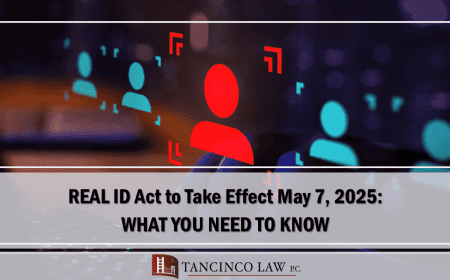1. Who are the U.S. Taxpayers Eligible to Receive Stimulus Payments?
- U.S. Citizens, Lawful Permanent Residents
Generally, U.S. citizens and green card holders have social security numbers and if they meet the income threshold, they are eligible to receive stimulus checks. - “Resident Aliens” with Social Security Numbers
These are the non U.S. citizens and non green card holders who qualify as resident aliens.
2. Who qualifies as a resident alien?
Non-U.S. citizens are considered nonresident aliens unless they meet one of two tests set forth by the IRS: the green card test or the substantial presence test.
I. Green Card Test: Lawful permanent residents of the United States are considered resident aliens if they were lawful permanent residents at any time during the calendar year. This is known as the “green card” test. Lawful permanent residents continue to have U.S. resident status under this test unless they voluntarily renounce and abandon their status in writing to the USCIS, their immigrant status is administratively terminated by the USCIS, or their immigrant status is judicially terminated by a U.S. federal court.
II. Substantial Presence Test: To meet this test, an individual must have been physically present in the United States for a designated minimum threshold period outlined by the IRS. One must be physically present in the United States (U.S.) on at least: (1)31 days during the current year, and (2) 183 days during the 3-year period that includes the current year and the 2 years immediately before that, counting:
- All the days individual was present in the current year, and
- 1/3 of the days you were present in the first year before the current year, and
- 1/6 of the days you were present in the second year before the current year.
Not all non-immigrants can meet the substantial presence test. Those allowed to meet this test are H-1B, L1, O1 and TN. And the following individuals are exempt and may not meet this test: F, J, M or Q visa holders.
3. What Is Income Threshold to Receive a Stimulus Payment?
- Individuals with adjusted gross income of $99,000 or less
- Head of Households with adjusted gross income of $112,500
- Married Joint Filers with adjusted gross income of $150,000
4. How much is the Stimulus Payment?
I. Full Payment
A one time payment of $1200 for Individuals with adjusted gross income up to $75,000 or,
A one time payment of $2400 for Married Joint Filers with adjusted gross income up to $150,000Individuals can also receive an additional $500 for each eligible child under the age of 17.
II. Reduced payment
Reduced Stimulus payment based on the following calculation:For individuals whose gross income is more than $75,000 and not exceeding $99,000
The stimulus payment is reduced by $5 for every $100 of adjusted gross income (AGI) above $75,000 for individuals, $112,500 for heads of households, and $150,000 for married joint filers.
The amount is completely phased-out for single tax filers with adjusted gross incomes exceeding $99,000, $146,500 for head of household filers with one child, and $198,000 for joint filers with no children.
5. Where does the IRS base the adjusted gross income for purposes of calculating the stimulus payment?
The stimulus payment is to be automatically advanced to eligible individuals in 2020 based on their 2019 federal income tax return. For eligible individuals who did not file a 2019 return, the rebate is to be automatically advanced based on 2018 tax return information.
6. May non-taxpayers who are SSI recipients receive stimulus payments?
Individuals receiving Supplemental Security Income or SSI will receive the stimulus payment in the same way they receive their monthly checks either through direct deposit, debit card or paper check SSI recipients with qualifying dependents must register these dependents with the IRS portal, otherwise no need to register to receive the stimulus payment.
Other individuals who will also receive their stimulus payments automatically include those receiving Social Security retirement, disability (SSDI), or survivor benefits, as well as Railroad Retirement benefits.
(This FAQ is prepared by Atty. Lourdes S. Tancinco, an immigrant advocate and legal counsel based in San Francisco CA. She is the principal and co-founder of Tancinco Law Offices and may be reached at law@tancinco.com, tancinco.weareph.com/old, facebook.com/tancincolaw, or at 1-888-930-0808)




